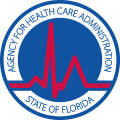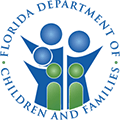Many people experience periods of sadness from time to time. During moments of stress, major transitions, the death of a loved one, or other stressful life events, it is common (and sometimes even beneficial) to feel sadness.
Understanding Depression
Learn about depression
However, sometimes a person may experience long periods of sadness, hopelessness, melancholy, or fatigue without any immediately apparent cause. These symptoms can interfere with a person’s ability to live a full, productive life, and when these symptoms are severe or long-lasting, it is possible that that person is suffering from depression.
With proper treatment, which includes therapy and sometimes medication, depression is treatable, and many people who suffer from depression are able to experience relief. Unfortunately, people who suffer from depression may turn to drugs or alcohol in an attempt to cope with the pain they feel, but the use of substances often makes things worse. Both depression and substance abuse are serious problems that each can have devastating effects on a person’s wellbeing. When they occur together, the potential for harm increases dramatically. The good news is that help and hope are available.
Statistics
Depression Statistics
Nearly 120 million people worldwide currently struggle with depression, 16-18 million of whom live in the United States. Although depression is a highly treatable ailment, 80 percent of sufferers will never seek help. In addition, almost 25 percent of people who struggle with substance abuse also suffer from depression. Depression tends to occur most commonly in 18- to 25-year-olds and decreases with age. Over the next 20 years, depression may become the second most common cause of disability worldwide, and yet two out of every three people will not even realize they have depression.
Causes & Risks
Causes and Risk Factors for Depression
There is no one single cause for the development of depression. Most mental health experts agree that depression is caused by multiple factors, including both genetic and environmental components. Recent research in the field of epigenetics has suggested that certain environmental factors, such as abuse or chronic stress, can “switch on” certain genes and cause a person who has a genetic vulnerability to depression to manifest depressive symptoms.
Genetic: Some research has suggested that an imbalance of certain chemicals in the brain, such as serotonin, may be partly responsible for depression. As with many mental disorders, people whose relatives have depression are more likely to suffer from it themselves. Children who have one parent who is suffering from depression are nearly 30 percent more likely to develop depression, while children who have two parents suffering from depression are nearly 60 percent more likely to be depressed. While growing up in an environment with two parents who are battling depression may seem to be to blame, studies of identical twins have supported the link between genetics and depression. Physical ailments, such as obesity, can also increase a person’s risk for developing depression. In rare cases, people with hormonal imbalances, such as hypothyroidism, can experience symptoms that mimic depression.
Environmental: While certain people may be born with a genetic vulnerability to depression, not all people with this genetic vulnerability become depressed. People who undergo significant life stressors, such as abuse, trauma, death of loved ones, divorce, and chronic stress, are more likely to experience depressive symptoms. Because not all people who experience these stressful life events become depressed, researchers suggest that depression is likely triggered by a combination of genetic vulnerability, temperament and personality, and environmental stress.
Risk Factors:
- Gender (women are more likely to report depression, though many researchers believe men are more likely to be “silent sufferers” of depression)
- Family or personal history of abuse, neglect, substance abuse, or mental illness
- Poverty or other severe chronic stressors
- Severe or chronic health problems
- History of other mental disorders
- Certain personality traits, such as dependence, pessimism, or low self-esteem
- Taking certain medications
Signs & Symptoms
Signs and Symptoms of Depression
Depression can manifest differently in different people, and different forms of depression may have somewhat different symptoms. Some people can barely bring themselves to get out of bed while others may simply go through life feeling somewhat numb, gray, and lethargic but are still able to function. Across the spectrum, however, there are a number of similarities in depression symptoms:
Behavioral symptoms:
- Lethargy or apathy
- Falling behind in work or school
- Emotional outbursts, including anger and tearfulness
- Lack of motivation
- Engaging in self-harming behaviors
- Suicide attempts
Physical symptoms:
- Unexplained physical pain or problems
- Weight loss or gain
- Slowed movement; feeling as though one is “moving through molasses”
- Changes in sleep patterns, appetite, or sexual desire
Cognitive symptoms:
- Distractibility or poor memory
- Slowed thinking, or feeling as though one is in a “fog”
- Trouble making decisions
- Excessive focus on guilt, past mistakes, or poor self-worth
Psychosocial symptoms:
- Withdrawal from relationships or hobbies
- Sadness more days than not
- Feeling numb or disconnected
- Loss of pleasure in activities one used to enjoy
- Feelings of wanting to end one’s own life
Effects
Effects of Depression
If left untreated, depression can have global negative effects, ranging from poor work performance to complete withdrawal from one’s work and relationships. Depression can even be fatal if someone with depression completes a suicide attempt. Other effects of depression include:
- Deteriorating health and increased risk of developing physical ailments, such as Type 2 diabetes
- Engaging in dangerous or risky behaviors
- Substance abuse
- Isolating oneself from family and friends
- Decline in occupational performance
- Development of disturbances within relationships
Co-Occurring Disorders
Depression & Co-Occurring Disorders
Often, in an attempt to cope with depression, a person may turn to alcohol or other drugs to numb the pain he or she feels. Although using substances may grant some relief in the short-term, the long-term consequences of substance use in conjunction with depression can be life-threatening. Furthermore, people suffering from depression may also meet criteria for other disorders, including:
- Attention-deficit/hyperactivity disorder (ADHD)
- Eating disorders, such as anorexia, bulimia, or binge-eating disorder
- Borderline personality disorder
- Anxiety disorders
- Obsessive-compulsive disorder (OCD)
- Posttraumatic stress disorder (PTSD)












